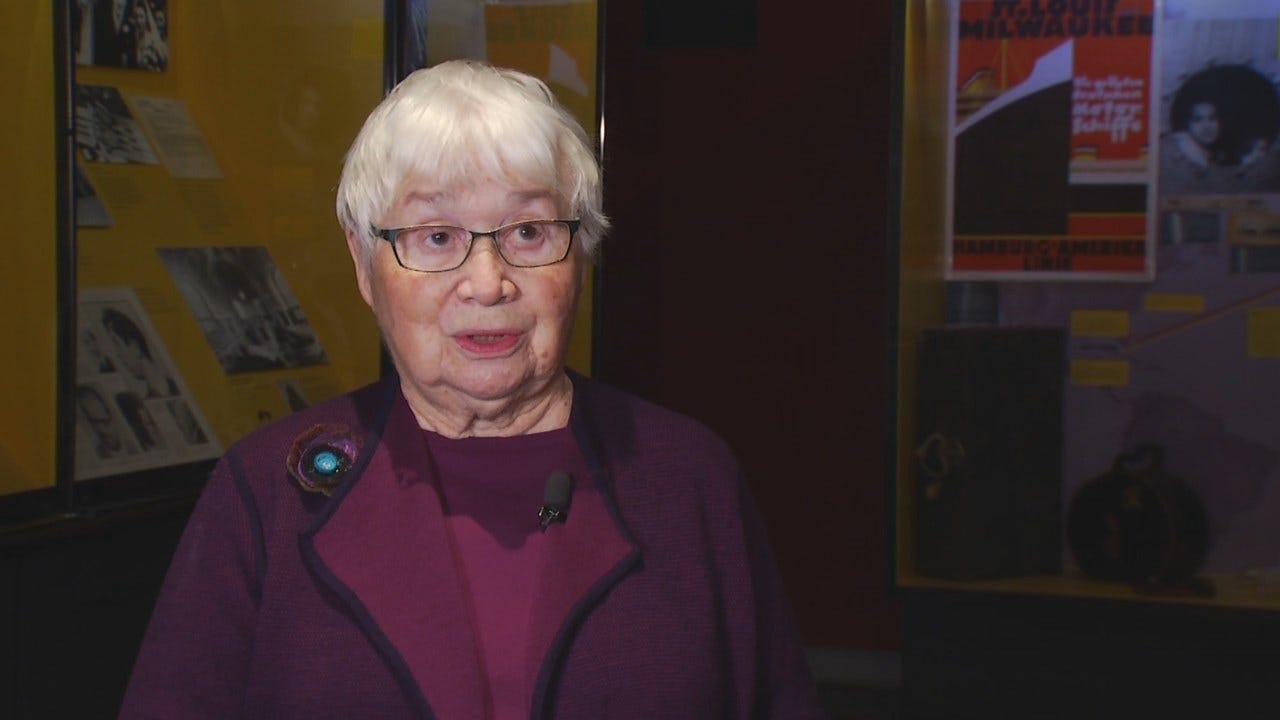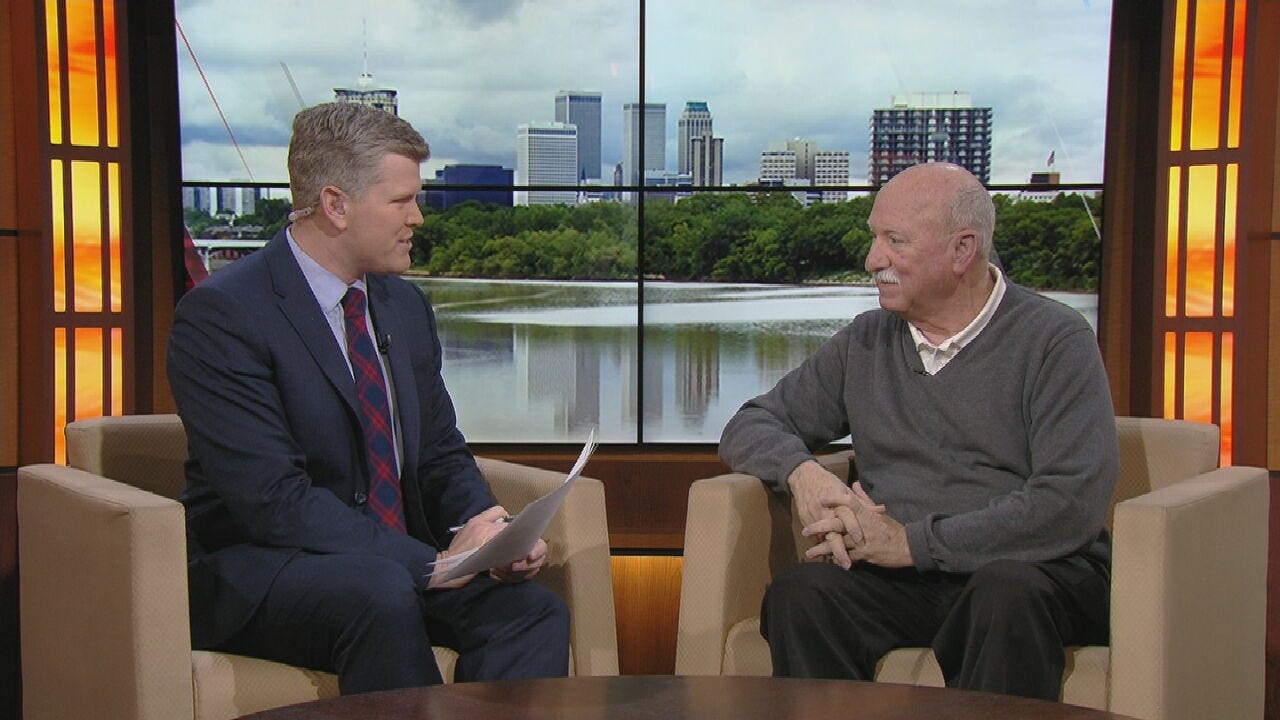Tulsa Holocaust Survivor Looks Back On The Horror Of World War II
This year marks the 75th anniversary of the Holocaust and Monday, January 27th is International Holocaust Remembrance Day. There are only two known Holocaust survivors living in Tulsa. One of them is Eva Unterman. This is her incredible story of survival.Thursday, January 23rd 2020, 12:41 pm
This year marks the 75th anniversary of the Holocaust and Monday, January 27th is International Holocaust Remembrance Day.
It is a day to pause and a day to reflect on the tragedy that occurred during World War II as 6 million Jews, including 1.5 million children, were murdered by the Nazis.
There are only two known Holocaust survivors living in Tulsa. One of them is Eva Unterman, and this is her incredible story of survival.
“We each have our own particular story, and mine is very unusual because I survived as a child. They're not many children that came out of Auschwitz" Eva said.
Eva Unterman is now 87-years-old. She carefully chose her words as she spoke with News On 6 about growing up in a large city in Poland with a loving mother and father.
Eva's story began in 1939 when she was just 6-years-old.
Her family took a vacation in the summer of 1939, and Eva remembered overhearing the adults whispering about something that was happening in Germany.
“They didn’t want me to hear; but there were some rumors. Something about Germany. I had no idea what it meant: I was 6-years-old.” Eva shared.
Eva’s family returned home. From the summer of 1939 on, things were never the same.
"I was not allowed to start the first grade -- which I was looking forward to -- because I was Jewish. I was not allowed to play with my non-Jewish friends. My father could no longer go to work. When we were outdoors, we had to wear those yellow stars of David with the word Jude, which is Jew in German; so, we could be easily identified, harassed, and insulted."
Tulsa’s Sherwin Miller Museum of Jewish Art and the Charles Schusterman Jewish Community Center is where stories like Eva's come to life.
Every 8th grade student in Tulsa Public schools gets the opportunity to tour The Sherwin Miller Museum. Eva's mother is even captured in a photo that greets guests at the top of the main stairway.
"My mother, the most resourceful person, and you must know that in order to survive you had to be resourceful.” Eva said.
The resourcefulness of Eva’s mother was essential when her family was taken to the Lódz Ghetto.
“We had to leave home and leave all our belongings except that which we could carry. I recall going up these old stairs to a room in which we were to live.” Eva said. “My mother found an old cot and pulled out a clean sheet and blanket from her bundle. That became my bed.”
For four years, Eva and her parents called a room in a dilapidated building in the ghetto home, but then they were moved to Auschwitz where Eva was separated from her father.
Eva recalled that most children did not make it out of Auschwitz, but she did. She and her mother even survived the bombing of Dresden and the Death March.
"I have since learned that it was 11 days that we walked along the River Elbe. Those who could no longer walk collapsed and were shot on the spot; and, mother dragged me along because I had injured my foot and was in pain, but she wouldn't allow me to give up."
Eva and her mother survived the Death March and were liberated.
“We were liberated on May 8th, 1945 by Russian soldiers.”
Later, Eva was reunited with her father. Miraculously her immediate family survived, and she has dedicated her life to educating others about the Holocaust, which she prefers to call the Shoah.
Shoah is the Hebrew name for the Holocaust.
Eva hopes her story, like all survivors’ stories, will be told for years after they die.
"Working with teachers is what gives me hope" Eva said.
Teachers like Nancy Pettus.
"The impact these survivors have, and their testimony, if they can interact with students; it's an experience that students never forget." Nancy said.
Nancy oversees the educational process at the community center after teaching middle school students in Jenks for 16 years. It was there where Nancy first started teaching about the Holocaust.
"The head of the department came in one day and she said, "Oh, we're starting out a Holocaust unit next week." And I said, 'What, I know nothing about the Holocaust." Nancy stated.
It was through that experience that Nancy learned that between 1941 and 1945 the Nazis set out to eliminate Jews in Europe. The Holocaust camps where mainly in Ukraine and Poland where the Nazis were helped by other countries to carry out their murderous plans.
"The more I read about it, the more important I found the lessons to be, and the way students respond –even in middle school—It's just a very important subject." Nancy said.
Eva agreed that it is key for students, and everyone, to learn about the Holocaust and what happened.
“All of us, no matter what country, or religion, or nationality we’re from: we’re humans” Eva said. “We must get along."
More Like This
January 23rd, 2020
November 25th, 2024
November 25th, 2024
November 25th, 2024
Top Headlines
December 12th, 2024
December 12th, 2024
December 12th, 2024












